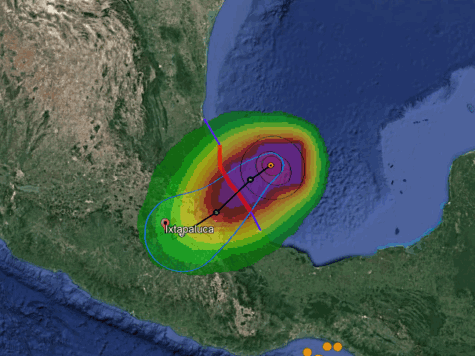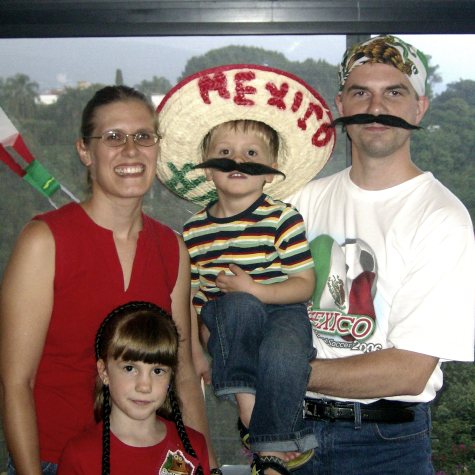We just wanted to stop by and let everyone know that we’re all fine here. That’s the short story.
First of all, yes, last night we most certainly felt the massive earthquake. It was apparently magnitude 8.1, the strongest to hit the country in a century. As you can see from the map below, it was not close to us, but strong enough to be felt in Mexico City. Below you can see the quake and the largest aftershocks in the last few hours.
 The news is telling us now that there are 32 confirmed deaths, mostly in the State of Oaxaca, but also Chiapas and Tabasco.
The news is telling us now that there are 32 confirmed deaths, mostly in the State of Oaxaca, but also Chiapas and Tabasco.
Here our power went out, and the internet and phone service has just been restored. Some in the country also lost water service, and it could be a few days before all the infrastructure is fixed. There are tsunami warnings today, and there have been some evacuations along the coast.
Schools in 11 states, including some in Mexico City, have been closed until experts and check for structural damage.
Of course things could have been much worse had the quake hit closer to Mexico City. Still, of course we are concerned for those in areas closer to the epicentre.
Hurricanes don’t tend to do a lot of damage where we are, because we’re so far inland. The exception is some flooding, which can cause a lot of inconvenience and in some areas serious problems. But nothing on the scale of what Irma and Jose are currently threatening further north.
 That being said, and this is unusual, Katia is the second hurricane of the year that is headed almost straight for us. For a few days it has been causing cool cloudy weather (and probably some headaches!). We don’t expect it to cause problems for us directly, but it may still cause serious problems on the border. And we’re always concerned about possible flooding in our area.
That being said, and this is unusual, Katia is the second hurricane of the year that is headed almost straight for us. For a few days it has been causing cool cloudy weather (and probably some headaches!). We don’t expect it to cause problems for us directly, but it may still cause serious problems on the border. And we’re always concerned about possible flooding in our area.
So again, we’re fine here, and not expecting any serious problems in our area in the days ahead. We do appreciate your prayers, and encourage you to pray as well for those to the east and north who are experiencing much, much worse.
Maps courtesy Google Earth, National Hurricane Center, and USGS.


 The news is telling us now that there are 32 confirmed deaths, mostly in the State of Oaxaca, but also Chiapas and Tabasco.
The news is telling us now that there are 32 confirmed deaths, mostly in the State of Oaxaca, but also Chiapas and Tabasco. That being said, and this is unusual, Katia is the second hurricane of the year that is headed almost straight for us. For a few days it has been causing cool cloudy weather (and probably some headaches!). We don’t expect it to cause problems for us directly, but it may still cause serious problems on the border. And we’re always concerned about possible flooding in our area.
That being said, and this is unusual, Katia is the second hurricane of the year that is headed almost straight for us. For a few days it has been causing cool cloudy weather (and probably some headaches!). We don’t expect it to cause problems for us directly, but it may still cause serious problems on the border. And we’re always concerned about possible flooding in our area. So to some extent we can relate to both sides – the Mexican schools with the many things that need to be purchased before classes start (you have no idea), and the reams of homework even in preschool. And the challenges of various types of homeschooling. (For you attending schools in other countries, we can’t so much relate to what you go through. But we hear enough about school in Canada to know that you have major challenges!)
So to some extent we can relate to both sides – the Mexican schools with the many things that need to be purchased before classes start (you have no idea), and the reams of homework even in preschool. And the challenges of various types of homeschooling. (For you attending schools in other countries, we can’t so much relate to what you go through. But we hear enough about school in Canada to know that you have major challenges!)